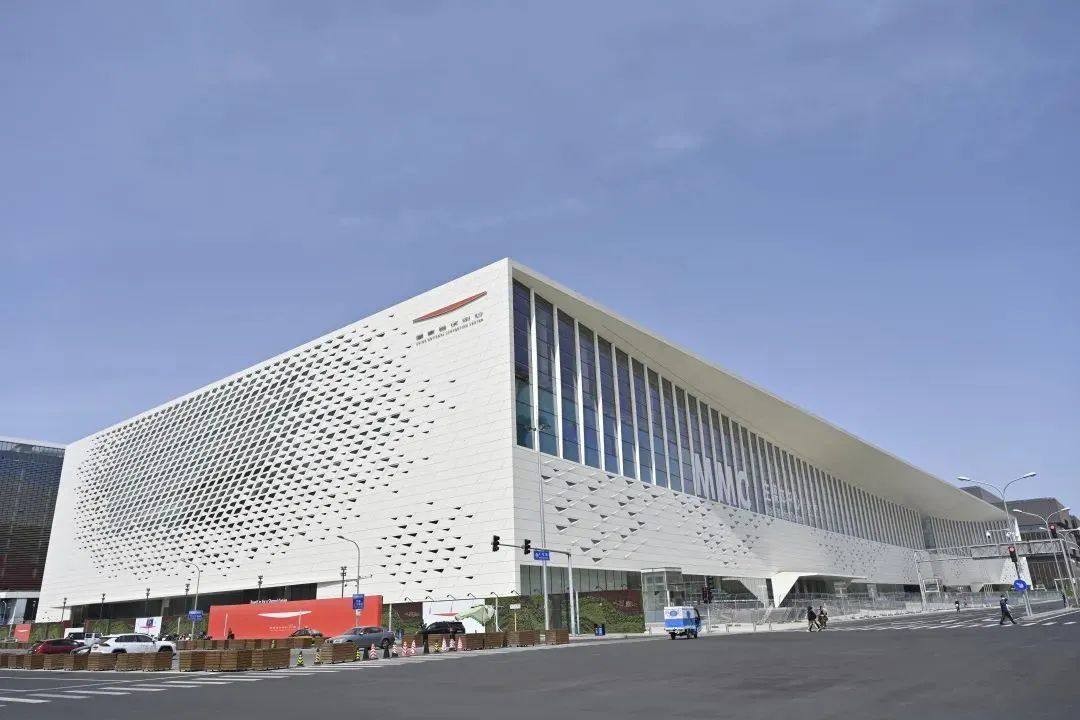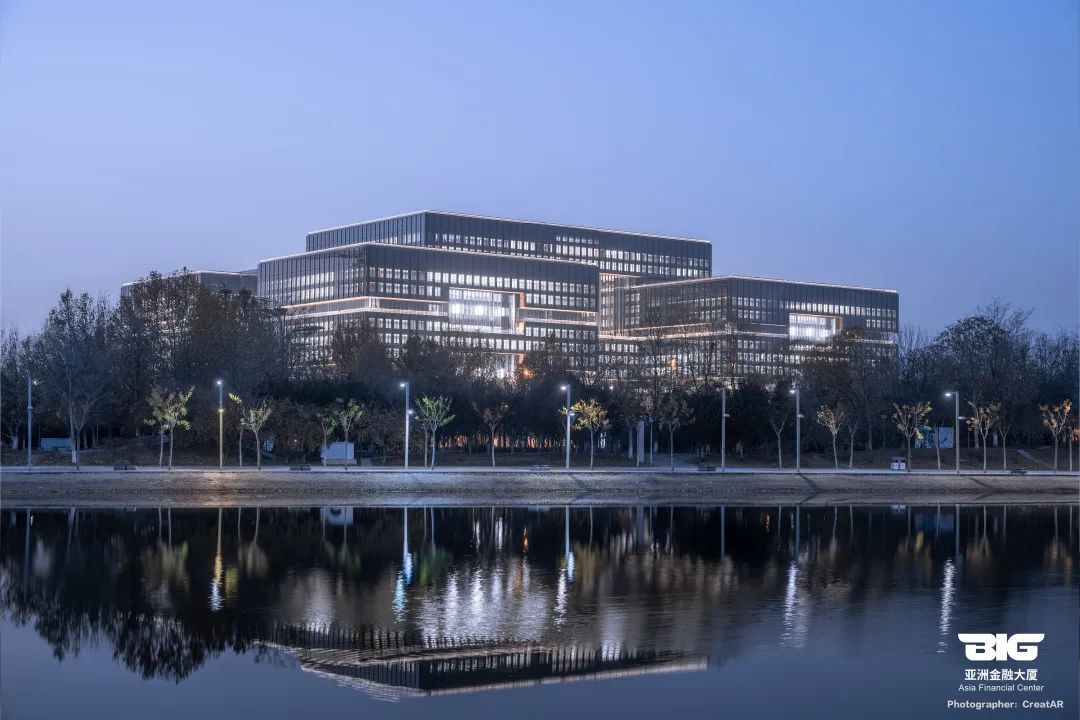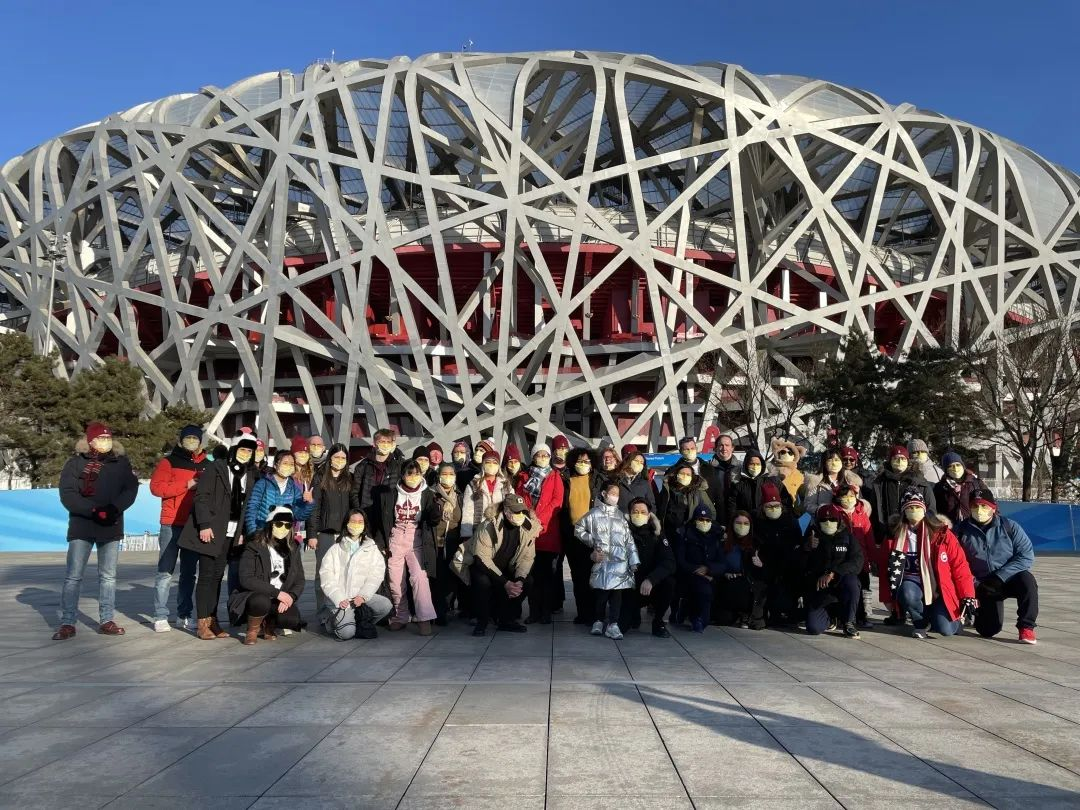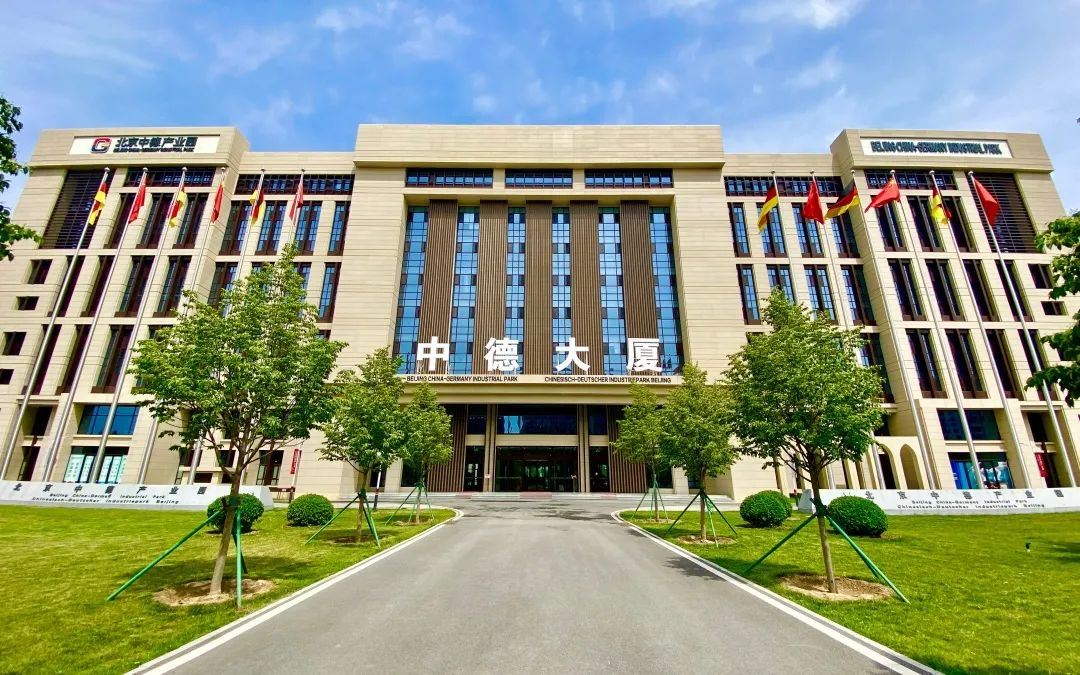As the Winter Olympics and Paralympics came to an end, the facilities of the games have been removed and China National Convention Center Phase II (CNCC-II), which served as the Beijing 2022 Main Media Center for the Winter Olympics and received friends and guests from across the world, will be under construction again. It is reported that after its completion, CNCC-II will regularly serve state affairs and major national events, contributing to Beijing's efforts to become an international exchange center with global influence.
From upgrading the supporting facilities to improving the soft power to deliver services, Beijing has been making fast yet steady progress to build itself into an international exchange center. Apart from serving China's overall diplomacy, such efforts also serve the capital's own high-quality development. With these two focuses, Beijing is strengthening its role as China's international exchange center and opening wider to the outside world.
Equipped with strong facilities, Beijing aims to become an international exchange center with Chinese characteristics
A few months ago, countless splendid moments and warm stories of the Beijing Winter Olympics were covered at CNCC-II, making China's voice heard globally. Now, no longer serving as the Main Media Center for the Winter Olympics, CNCC-II, located in the central area of the Olympic Park, is quietly under construction again. However, the building can hardly keep a low profile. Its overall shape, which looks like a flying Kunpeng—a mythical gigantic bird, gives this great building a sense of elegance and solemnity. The design of the large eaves of the east facade conveys the charm of traditional Chinese architecture.
The CNCC-II project officially started in January 2019. The total construction area is about 785,000 square meters, of which the main part is the convention and exhibition center with a total area of about 419,000 square meters. After the Paralympic Winter Games concluded on March 17, relevant equipment was removed from the venues and the construction project continued. It is scheduled to be completed by the end of 2024 and officially put into operation in 2025.

External view of CNCC-II
There are three floors on the ground and two floors underground in the main building of CNCC-II. The first thing that comes into your sight upon entry into the venue is the ground lobby with a 26-meter ceiling height. The background wall adopts the world's most advanced LED screen, which can display different content for different settings. On the third floor, functional space comprising banquet halls and roof gardens is being carefully designed and decorated to serve the needs of major national events.
The concept of "green, intelligence and energy efficiency" has been applied to the CNCC-II project throughout the construction. The roof of the large garden can be rolled to the side. Li Xiaolin, deputy general manager of North Star Events Investment Co., Ltd., said that there are three groups of retractable glass roofs in large and small gardens. "The roof gardens adopt the retractable roof design to enhance the natural ventilation and natural lighting, allowing the main building to 'breathe' with the city. It not only saves energy, but also creates a suitable environment for the growth various plants."
Li Xiaolin said that when CNCC-II is completed, it will serve as an important facility for diplomatic events held in China and contribute to Beijing's efforts for building an international exchange center. CNCC-II, combined CNCC-II, will form an exhibition complex with a total area of over 1.3 million square meters.
More importantly, CNCC-II will provide firm support for strengthening Beijing's role as an international exchange center. Statistics show that in the past five years, Beijing has received over 100 foreign heads of state and government and more than 700 party and state visiting groups totaling over 9,000 people, and organized nearly 900 visits, inspections, and other activities. Beijing has been making its contributions to China's major-country diplomacy in the new era and the country's endeavor to build a community with a shared future for mankind.
Relevant facilities are the foundation for Beijing to serve as an international exchange center. Last September, Beijing released the blueprint for improving its function as an international exchange center. In terms of supporting facilities, the Plan for Improving Beijing's Role as a Center for International Exchange During the 14th Five-Year Plan Period outlines plans to improve the function of Yanqi Lake International Conference Resort, build China National Convention Center Phase II, and create an international convention and exhibition complex featuring integrated development of industries. Beijing has also introduced and implemented the Development Plan of Dongba Area, which stipulates the requirement to build the fourth embassy zone up to high standards and turn its surrounding area into the second Sanlitun.
According to the Foreign Affairs Office of the Beijing Municipal Government, Beijing will speed up efforts to improve the overall function of Yanqi Lake International Conference Resort and make it a professional place that can host all types of major diplomatic events on a regular basis and up to international standards. Moreover, Beijing will seize the opportunities presented by urban renewal, application for recognition of the Central Axis as a UNESCO World Heritage site, and the building of a city of museums to create a group of "national venues for international exchange" with distinctive characteristics. It will promote the development of large exhibition facilities, such as the three cultural facilities of the Beijing Municipal Administrative Center, phase II of the National Convention Center and phases II and III of China International Exhibition Center (new venue), and the International Convention Center of Beijing Daxing International Airport Economic Zone, and ensure service support for major national events.
Improve the service capacity—environment, talent, and service
To build an international exchange center, facilities are the foundation and service capacity is the core. The latter includes the quality of relevant professionals and services, as well as job opportunities and living environment. Surrounded by a dragon-shaped water system on the Central Axis of Beijing is the Asia Financial Center, a 5A super-Grade A building complex where the Asian Infrastructure Investment Bank (AIIB) is headquartered and one that meets the office requirements of international organizations.

External view of Asia Financial Center
Wang Jianrui, director of the Beijing Center of the University of Hong Kong (HKU), fell in love with the Asia Financial Center at first sight. Since the HKU Beijing Center settled in the complex in 2020, she has been looking forward to making it a magnet for high-end talent and a bridge to connect Beijing with Hong Kong and communicate with the world. "Hong Kong needs to serve the national strategy. We also took the environment into account for the siting of the HKU Beijing Center. When high-end entrepreneurs gather or receive training here, they are more likely to feel that they are back to campus in such a nice environment."
Liu Ke, deputy general manager of Beijing Investment Commercial Real Estate Operation Company, said that the current occupancy rate of the building has reached 90%. In addition to the AIIB and the HKU Beijing Center, a number of well-known international institutions such as the Sino-Nordic Promotion Association for Green Sustainable Development, the China-US Green Fund, China-UK Culture & Creativity, and Sino-US United MetLife Insurance Company Limited have successively settled in.
"We also make efforts to promote China's voice and Chinese culture in various ways in the operations and management," said Liu Ke, "Since the building was put into use three years ago, we have organized more than 500 international events for tenants. For example, musicians and artists gathered in Asia Financial Center for the NCPA May Festival last year, bringing music performances to the international organizations and institutions here."
To build an international exchange center, Beijing will strengthen its soft power to support high-end conferences and deliver quality "Beijing services". The city will fully tap into the ancient culture of the capital, its revolutionary heritage, sci-tech strengths, and the legacy of both the Summer and Winter Olympics, improve key areas' environment and create a special and warm reception atmosphere up to international standards. It will improve the regular working mechanism for major national events and build a service platform that enables fast communication and efficient operation.
During the Beijing Winter Olympics when foreign dignitaries visited Beijing, the city did a good job in epidemic containment and reception, and secured transportation services and urban operation, making a new breakthrough in providing logistic support for major diplomatic events held in China under the closed-loop model, which won praise from foreign leaders.

Foreigners in Beijing experience the charm and splendor of the Beijing Winter Olympics
In fact, Beijing has already demonstrated its strong service capacity in the past five years as the city works to build itself into an international exchange center. For example, the "three platforms" are having a bigger influence: the China International Fair for Trade in Services has become China's only state-level comprehensive exhibition with a global reach in the field of trade in services; the Zhongguancun Forum has been upgraded to an exchange and cooperation platform for international scientific and technological innovation that integrates sci-tech exchange with the exhibition, release, and trading of innovation achievements; and the Financial Street Forum is known as one of the barometers of China's financial reform and development.
Beijing has formulated measures to facilitate work permits application in China, simplifying the procedures and materials required for foreigners to apply for the invitation letter for Chinese visa. Foreign professionals can enjoy the joint processing of work permits and work-type residence permits in nine districts in Beijing, including Chaoyang District and Tongzhou District. The visa-free transit policy at ports of entry in Beijing has been extended to 144 hours. Since the onslaught of COVID-19, Beijing has been helping foreign-funded enterprises to resume work and production, and has assisted more than 10,000 foreigners with their return to Beijing from overseas.
It's important to retain the talent that have come to work in the city. To stimulate entrepreneurship and employment, Beijing has launched the catalog on international professional qualification recognition covering 82 professional titles, encouraging international professionals to work in Beijing. To improve the living environment for international professionals, Beijing plans to establish 105 international schools, and supports Chinese enterprises and individuals to build schools for children of foreign nationals. As a result, the city has witnessed significant improvement in its ability to provide international education. Beijing has also launched more than 60 signature international cultural festivals and activities such as Beijing International Film Festival and Beijing Design Week and introduced more than 30 well-known international sports events such as the China Open and the Beijing Marathon.
Attract high-end resources—when the international center for exchange meets the "two zones" development
"Exchange" is the key to the international center for exchange, whose role is not simply to facilitate the movement of people, but more importantly, to serve as an opportunity to attract and gather international high-end resources that are in line with Beijing's functional positioning and make the capital more international.
Located in Shunyi District, China-Germany Industrial Park, which was officially approved and established by the National Development and Reform Commission, is the first national-level industrial park focusing on economic and technological cooperation between China and Germany. At present, the Park has gathered 73 German-funded enterprises including Mercedes-Benz, Ameco, and Wilo, among which, 25 are hidden champions. In 2021, the total industrial output was nearly 30 billion yuan, with 120 million US dollars of new investment. There are more than 100 German senior management personnel and engineers, forming a good momentum of attracting high-end resources of international cooperation.

China-Germany Industrial Park
When interviewed by reporters from Beijing Business Daily, staff from China-Germany Industrial Park said that it would actively carry out various forms of exchange activities, foster an enabling environment for international cooperation, and pilot in fields including operations management services, innovative network development, expansion of cooperation channels, and upgrade of supporting facilities, to create an open and innovative environment for the exchange of high-end resources of international cooperation and form a new industrial cluster of international cooperation.
Undoubtedly, Beijing has advantages in attracting high-end resources. In the past five years, Beijing made great efforts to attract foreign investment and strived to create a world-class business environment. The world's top multinational companies such as Seragon and LafargeHolcim have set up their regional headquarters in Beijing. There are 207 regional headquarters of multinationals in Beijing, and the total number of foreign companies there is close to 50,000. Three major international rating agencies—Moody's, S&P, and Fitch— as well as two major bank card clearing agencies—Mastercard and Visa—are doing their business in Beijing. Deloitte is establishing a Deloitte University in Beijing. About 300 projects including BMW China Investment and Daimler Truck China have landed in Beijing.
Going forward, Beijing will actively encourage international organizations and institutions that are in line with Beijing's functional positioning and meet the needs of high-quality development to settle in the city. Beijing will make great efforts to attract foreign investment and encourage more regional headquarters of multinationals, R&D centers, and international functional platforms to settle there. Beijing will speed up efforts to build international talent communities and develop demonstration blocks with distinctive features, and host the HICOOL Global Entrepreneur Summit and the China-Europe Talent Forum.
In terms of attracting foreign investment, Beijing will give full play to its strength of the "two zones" policy and encourage functional platforms such as factor trading, international certification agencies and international rating agencies to settle in Beijing. It will work closely with the "Global 500", leading companies in key fields, and hidden champions in industries to introduce a number of foreign-funded projects that are in line with the capital's functional positioning.
(Reporter: Yang Yuehan)
(Photo sources: Beijing Foreign Affairs Office, Beijing Investment Group, China-Germany Industrial Park)


